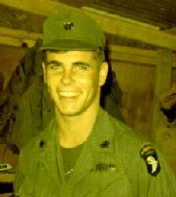
The 60s Official Site
"Where Music is Our Middle Name"
Quick Links
Your Daily Oldies Fix Top Ten Countdown Solid Gold Memories Jukebox Music
Vibration of a Nation Remember When Television of the 50s and 60s 60s Slang
Things You Just Don't Hear Anymore 60s TV Commercials Chickenman Episodes Woodstock This Weeks Number One Hits
The Early Years of Rock and Roll Vietnam War Myths
All the content menu is listed on the left menu border bar
Wholesome, Winsome, Widowed TV Dads of the Sixtiesby Eva Pasco Wholesome and winsome TV dads of the Sixties were primarily well-to-do widowers with live-in help. S-o-o-o many contenders in the “grandest-of-all” arena for female divorcees and widows in the neighborhood to walk over their pot luck dinners in the hope of winning a man’s heart through his stomach. Take ranch dude, Ben Cartwright. How unlucky can a guy get? Each of his three wives died in childbirth. Yet, he raised three sons with distinctly different temperaments on the Ponderosa, taught them to care for one another, their neighbors, and just causes. They may have gotten into an occasional barroom brawl, but boys will be boys. (Bonanza 1959-1973). The intact family as we knew it began to fray in the Sixties. Issues pertaining to class, race, and gender caused their own turbulence. Television didn’t necessarily keep up with the Joneses’ reality, let alone the real struggles single parents face. For instance, Bentley Gregg, a wealthy bachelor attorney from Beverly Hills assumes guardianship of his niece for 150 episodes of Bachelor Father (1957-1962). Between Bentley’s successful law practice and his social life with beautiful women, how did he juggle the added responsibility of raising a teenage girl? Easy! Peter, the Oriental houseboy practically ran the household. While winsome, this bachelor is hardly a candidate for father of the year. Homesteader, Lucas McCain aka The Rifleman (1958–1963), takes single parenting quite seriously, and instills a sense of independence and honor in his son, Mark. Though a rifle was McCain’s constant companion, he didn’t always fire it. By setting good examples, he teaches his son about fair play, neighborliness, equal rights, and perpetrating violence as a last resort. “A man doesn't run from a fight, but that doesn't mean you go looking to run to one.” Mayberry’s Sheriff Andy Taylor deserves a badge for his outstanding job as a single parent. In nearly every episode of The Andy Griffith Show (1960–1968), the Sheriff taught his son Opie valuable lessons during their hear-to-heart talks—namely, to do the right thing. He also spent quality time taking his son fishing and emphasizing the importance of school. No wonder Aunt Bee enjoyed serving up a platter of fried chicken with all the trimmings for her wholesome fellas. Just don’t bite into her “kerosene cucumbers”! For twelve years, we sat ringside, privy to the single parenting style of Steven Douglas, an aeronautical engineer raising three sons with stand-in mom, Uncle Charley (My Three Sons, 1960–1972). Talk about the empty nest syndrome—his three sons move out, go to college, and get married. Even dad ties the knot. Though Mr. Douglas deserves accolades for his superior parenting job, his ratings plummeted against the likes of bigoted and curmudgeonly Archie Bunker who had his hands full with the Dingbat, Gloria, and the Meathead as he grappled with issues like menopause, infidelity, divorce, alcoholism, impotence, and depression. Those were the days! Porter Ricks, Miami’s Chief Warden at Coral Key Park and Marine Preserve, wasn’t exactly a dad social workers flipped for (Flipper, 1964–1967). His sons Sandy and Bud may have kept company with a school of fish, but there was never any indication they attended a school to learn academics. The moral instructions Frances Elizabeth Lawrence received from her dad were short-lived (Gidget, 1966-1967). Despite Gidget’s zany adventures in school, home, and on the beaches—it was “Toodles!” After all, even well-meaning parental lectures given by a UCLA professor can be quite dry. Well-to-do civil engineer and bachelor, Bill Davis, living the charmed life in his Park Avenue apartment in Manhattan, suddenly finds his world turned upside down when his two nieces and nephew move in. Saddled in the wake of an automobile accident which took the lives of his brother and sister-in-law because no other relatives would take on the responsibility, he steps up to the plate. Somehow, he makes it work under the auspices of his valet, Mr. French, who, at first quite mortified by the daunting prospects, in effect becomes the children’s nanny and Bill’s parenting coach (Family Affair, 1966-1971). A recently widowed, handsome, thirtyish magazine publisher should have no trouble getting remarried, right? Tom Corbett’s son Eddie often manipulated his father in his attempts to get him to the altar. While the two of them engaged in frequent talks about major lessons learned and pondered their significance, the burdens of single parenthood were lifted by Mrs. Livingston. Their indispensable Japanese housekeeper offered wise advice while looking after Eddie for “Mr. Eddie’s Father” (The Courtship of Eddie’s Father, 1969-1972). As front row voyeurs, we got an eyeful of how a blended family learns to adjust in becoming a unit despite sibling rivalries and family squabbles (The Brady Bunch, 1969-1974). Mike Brady, a widowed architect with sons of his own, takes on a new wife and her daughters. No reference was ever made as to whether Carol was widowed or whatever because the network didn’t think prime time viewers could handle the handle of “divorced.” How fortunate for Mike and Carol to agree to keep his live-in housekeeper, Alice. At any rate, the proof is in the pudding about Mr. Brady being a great dad. He won “Father of the Year” on the show after Marcia submitted an essay extolling his virtues to a newspaper. Wholesome, winsome, widowed TV dads of the Sixties did the best
they could with the cards they were dealt with—in their case, a script. Even at that, Bill Bixby who
portrayed Eddie’s father, walked out due to creative differences as later episodes placed less emphasis on the
courtship of father and son. In real life, where deadbeat dads are part of our frayed society, there are plenty of winsome and wholesome dads who are divorced and struggling to make ends meet to pay child support, hang onto their job, and make the car payments. Wouldn’t it be fine and dandy if they had a live-in maid or houseboy who could be counted on to pick up the slack? |
|




